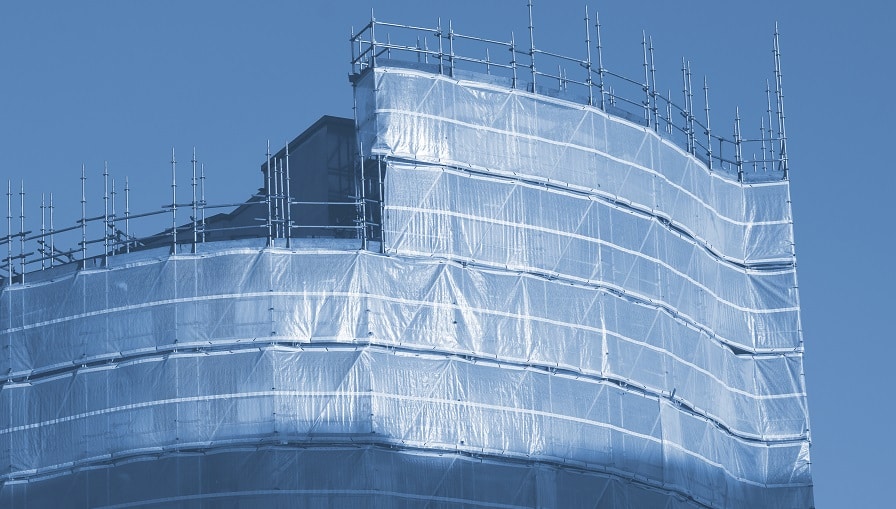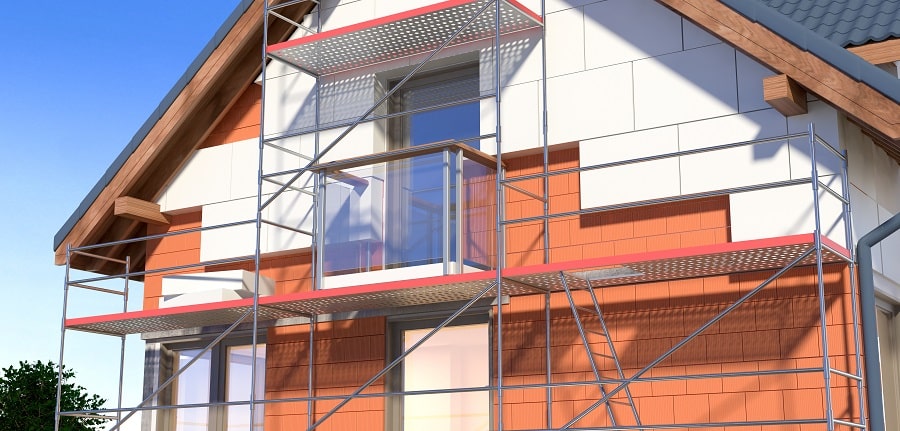The construction industry’s accident fatality rate is over double that of any other sector’s average – for minor accidents, the accident rate is almost incalculable. This shows that construction sites are a health and safety nightmare. Almost any considerable hazard imaginable exists within the sector. Even though measures should be taken to address all possible dangers, some are more pressing than others and should be addressed first.
Listed below are some of the top construction site hazards you will encounter at a construction site and methods that you can use to control them.
Moving objects
A construction site is a regularly changing environment, which sees hazards on the site continue to evolve as a construction project progresses. There are a lot of moving objects in and around construction sites such as – supply vehicles, diggers, overhead lifting equipment – all working within the same space.
To reduce the risk of an incident or an accident from moving objects, ensure that you always have on the appropriate Personal Protective Equipment (PPE), such as high visibility clothing, safety helmet, biohazards suits and so on.
Avoid standing close to moving objects.
Be conscious of your surroundings. There can be moving objects that don’t have beepers or lights.
Noise
HSE reports from 2007 to 201, show that there have been over 1505, new construction work-related deafness claims in the UK. Out of this, 1495 were men and 10 women. This just demonstrates that construction sites can be a nightmare, especially because of their hazardous noise levels. What compounds the problem is that construction workers are pretty lax about wearing protective hearing gear. Partly because the wrong hearing protectors are often being issued.
Safety measure: ensure the hearing protection you get is the right one, then use it.
Asbestos
Fun fact about Asbestos refers to six types of fibrous mineral. When materials that contain asbestos are damaged or disturbed, this fibrous mineral is released into the air. Sadly, even though this mineral is naturally occurring, when inhaled it can have serious and fatal health consequences.
Asbestos inhalation has been linked with diseases such as lung cancer, pleural thickening and asbestosis. In fact, asbestos kills about 5000 construction workers every year and on average 20 tradesmen die weekly. The numbers are high because an estimated 500,000 public buildings in the UK contain asbestos. .
Safety measure: if there is asbestos on a site, as an employer it is your responsibility to inform your workers. In addition, your workers have to be trained on what to do if they come across materials that might contain asbestos.
HAVS
HAVS (Hand Arm Vibration Syndrome), is a debilitating and painful disease of the nerves, joints and blood vessels. It is typically caused by the prolonged use of handheld power tools, such as vibratory power tools and ground working equipment.
Thankfully, it is possible to prevent HAVS. However, when the damage has been done, it is permanent. According to HSE, about 2 million construction workers are at risk of having HAVS. The effects of the disease include the inability to do work, as well as cold temperatures triggering painful attacks to the fingers.
Safety measure: ensure that you wear the relevant PPE gear when using vibrating tools and ensure that equipment is regularly maintained.
Falls
about 40% of construction site accident fatality occurs as a result of falls- which makes falls the leading causes of construction site deaths.
For protection: the golden rule of fall protection is always use fall protection regardless of the fall distance. It is also important that you inspect your fall protection gear before each use for knotted or frayed ropes, stress cracks, broken parts and other kinds of damages.
Having the right scaffolding systems is a must. Contact JL scaffolding Eastbourne if you are looking for an expert scaffolding company to make your site safer.
Takedowns
Anyone familiar with the construction industry will know construction projects aren’t about just putting things up – things also have to come down – demolition is a natural part of the process. In addition, some projects involve working underground or boring into the ground, with excavation to
create holes and trenches – all of which can cause injury, fatalities and major accidents in the event of a collapse.
Safety measures: all through the phases of the project, there needs to be regular assessment of collapse risks. In addition, deployment of remedy structures like scaffolding and protection barriers need to also be regularly checked. Risk zones need to be clearly defined and fit for purpose, and high visibility signage and systems should be put up.
Vehicles
Work on construction sites often involves the use of moving machinery and vehicles. According to a report released by the NHASA, one of the most frequently occurring fatal accidents on construction sites is being struck by moving vehicles.
Safety precautions: there should be a full assessment of vehicle use and safety protocols – designated traffic management and moving vehicle zones, with the use of the right signage and the right barrier systems.
On a final note – put safety first
Written safety pass policies significantly reduce lower the number of construction accidents on a site. A proper safety program that provides weekly and daily safety information and reminders for workers on the site is also a smart thing to do. Do not forget to invest in proper protection equipment (PPE). Conducting routine maintenance of tools and machinery could be the difference between life and death in the long run; do not skip the checks.














